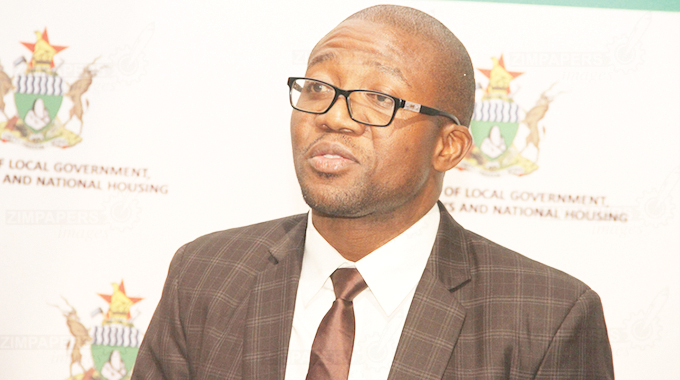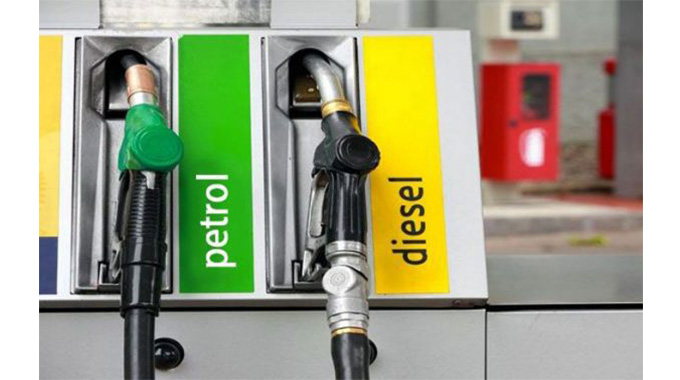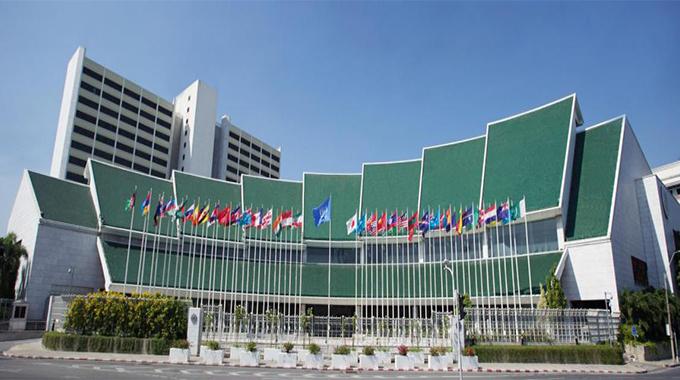
The Sunday News

Vusumuzi Dube, Online News Editor
ENVIRONMENT, Climate, Tourism and Hospitality Industry Minister Nqobizitha Mangaliso Ndhlovu has called on the country to consider increasing petrol blending by more than 40 percent from 20 percent, saying this will significantly reduce emission levels.
The blending, he said, will be guided by the availability of ethanol in the country. In an interview on the Zimpapers Television Network’s The Pulse, Minister Ndhlovu said there was a need to continuously reduce the country’s carbon footprint hence the need to blend petrol at a higher percentage. He however, noted that this was based directly on the availability of ethanol.

fuel pump
“We are a country that is blending fuel, blended fuel emits far less than unblended fuel, so as a country we are getting to a stage where we will start quantifying our carbon credit. When we blend our fuel, we are blending it fossil fuels, making much greener. I think our idea as a country is to be blend more, it’s a question of producing adequate ethanol which is still constrained. We have gone as far as blending up to 20 percent, with the main restriction being that of having adequate ethanol. If we could be producing more ethanol, I would envisage a scenario where Zimbabwe is blending upward of 40 percent,” said the Minister.
Meanwhile, the Minister has said there was a need for the nation to start getting a full appreciation of the impact trading in carbon credits can have towards the development of the nation. He said this was a multi-billion-dollar industry which needed to be effectively exploited.
According to the United Nations Development Programme (UNDP), carbon credits are trading systems in which carbon credits are sold and bought where companies or individuals can use carbon markets to compensate for their greenhouse gas emissions by purchasing carbon credits from entities that remove or reduce greenhouse gas emissions.

United Nations Development Programme
“At times when people talk about carbon credits, it seems like an alien language. What happens is that what really causes climate change are carbon emissions which then form what is sort of a cloud in the atmosphere, which makes the earth much hotter, therefore accelerating evaporation and then you get extreme weather events. For us to fight climate change we need to come up with measures to reduce our emissions and also to absorb emissions in the atmosphere which will see us gradually addressing climate change,” said Minister Ndhlovu.
He said Zimbabwe had a lot of potential in terms of carbon credit trading, noting that the country was embarking on numerous projects meant at reducing carbon emissions.
“The carbon prices are market determined, at one time they fell to less than US$1 but now when you look at the compliance market they range between US$40 and US$100 per credit. However, on the voluntary market, which is what had begun in Zimbabwe, prices are far less at US$5 and US$10. What I must emphasise is that there is a lot of opportunities in carbon credit trading, for example right now we have Pfumvudza, whose structure is minimal tillage, the soils are one of the major storages of carbon, so when you till using tractors, you will be exposing carbon into the atmosphere but with the minimal tillage we are avoiding emissions, hence our carbon credits rise,” said the Minister.
He, however, took a swipe at some unscrupulous Non-Governmental Organisations who for some time now have been robbing communities of their carbon credits through what they claimed was goodwill.
“What has been happening in communities is that there has been some unscrupulous people taking advantage of our communities. They go to the communities and donate what they call Tsotso stoves, they also give them water purifiers and even sink boreholes. These organisations then say these Tsotso stoves have helped communities save forests hence generating credits for that, but also they will be earning millions just for this.
“What our new Carbon Credit Framework has now done is that for everyone in Zimbabwe who wants to engage in carbon credit trading has to go through the designated national authority, going through the rigorous process of registering because we now want them to go to communities with our full knowledge otherwise we will have different companies targeting the same communities which might seem as if we would be wanting to prejudice the system,” said Minister Ndhlovu.
He said they would want the creation of a ratio of distributing proceeds from the trade of carbon credits, which will see the local communities also benefiting.
Speaking during a post Cabinet briefing last Tuesday, Information, Publicity and Broadcasting Services Minister Monica Mutsvangwa said the Carbon Credit Framework for Zimbabwe seeks to enhance Zimbabwe’s role in reducing Green House Gas emissions, mobilise climate change finance and increase technology development and transfer from the compliance and voluntary carbon markets.
“The framework spells out the processes and institutions required to ensure that carbon credits assist the transformation needed to promote climate change mitigation and low carbon emission in various sectors, among them, energy; and forestry. The Framework aims to ensure integrity, accountability, and transparency in carbon trading and provide guidance on sharing of proceeds. There are additional co-benefits associated with carbon trading, including biodiversity protection; prevention of pollution; public-health and education improvements; and job creation,” said the Minister.



